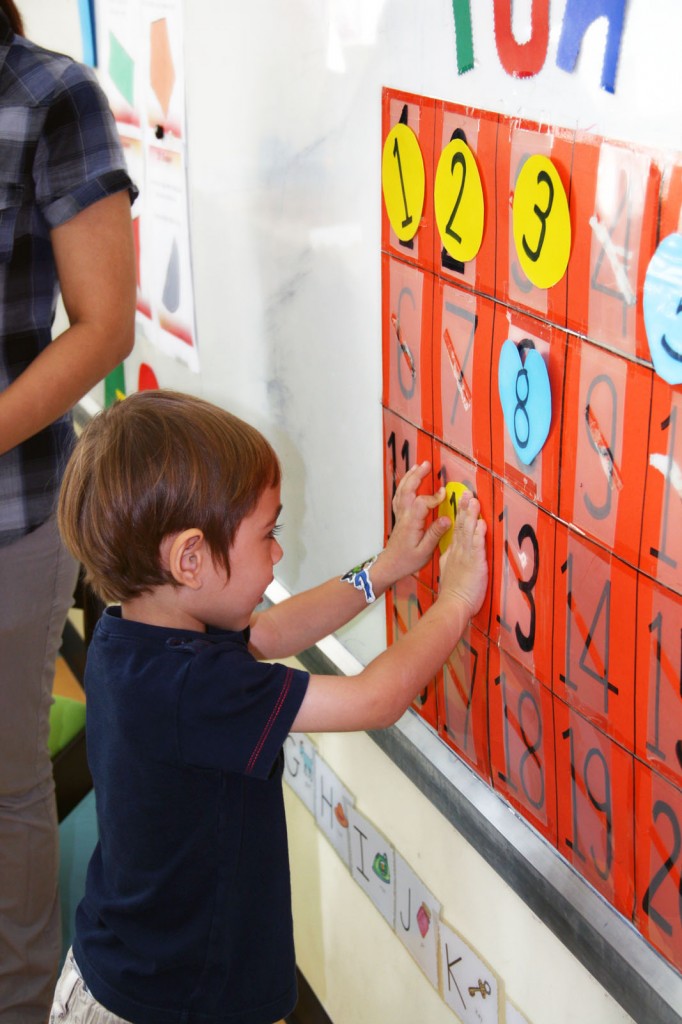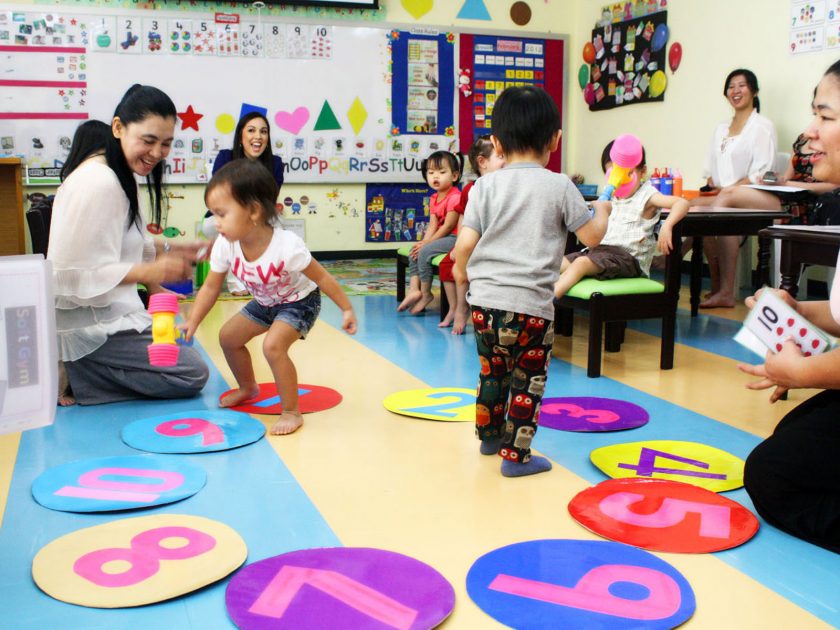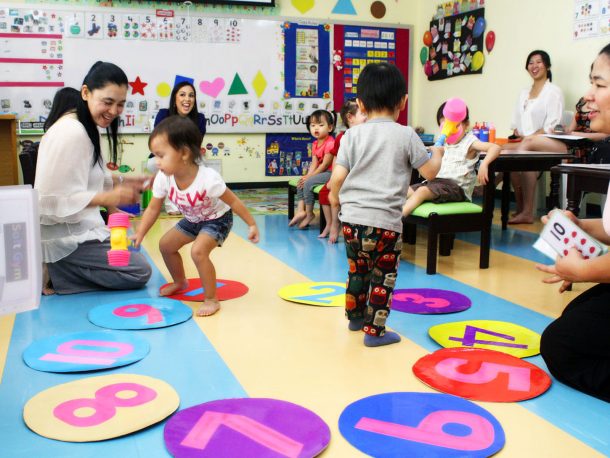
Virtually no decision is as important for parents as the choice of a school for their children. Involving more than simple faith in the academic quality of an institution, it also requires them to place their trust in strangers to nurture, protect and care for each and every child. The choice becomes even more difficult at the kindergarten level, as parents face the prospect of leaving their children alone for the first time, unsure of whether they are making the right choice. Toddlers entering into nursery and kindergarten for the first time may also experience stress as they deal with new, unfamiliar faces and situations. It is thus essential that teachers and staff remain highly aware of children’s emotional, physical, social and intellectual needs in order to provide them with the best possible education. Parents at our kindergarten campuses recently had the opportunity to see the Wells teachers in action as they opened their classrooms for a teaching demonstration day.
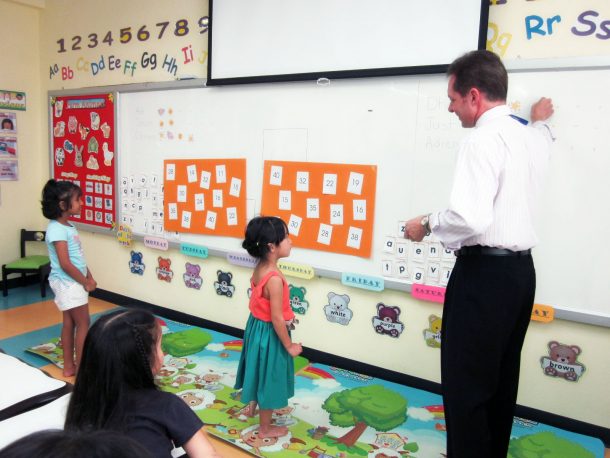
When Wells was first established as EverClever International Kindergarten in 1998, it adopted the mantra of “Learning through play,” a belief that infused every aspect of the instructional model. (See a visual history of Wells on our Facebook page.) From the introduction of the alphabet and numbers to yoga and sports, every aspect of the curriculum incorporated games and activities that drew young children out of their shells, encouraging them to explore and experiment with their surroundings. This approach has carried through to the present, as Wells International Kindergarten – Thong Lor and Wells International Kindergarten – Bang Na utilize the same models in the classrooms, maintaining a strong commitment to age-appropriate practices and an awareness of the children’s need for active engagement.
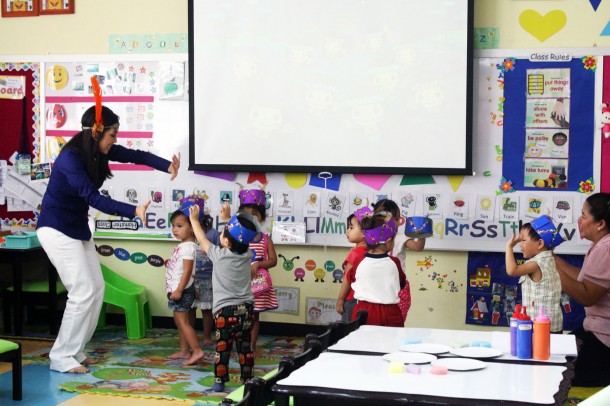
Wells’ kindergarten curriculum aligns itself with the child development stages identified by child psychologists. As toddlers begin to develop their physical, motor, social and language skills, the teachers blend their instruction into the many activities that take place on a daily basis, addressing multiple skill sets through each activity in order to ensure that the children remain active and attentive. To avoid overstimulating them, these activities are limited in time and scope, making them challenging without causing emotional or social withdrawal. This process aligns with current research into child psychology; as identified by Daniel Goleman in Social Intelligence, children who regularly encounter moderately stressful situations while being guided by a nurturing adult become better adjusted as they age and are better equipped to handle unfamiliar situations and tasks.
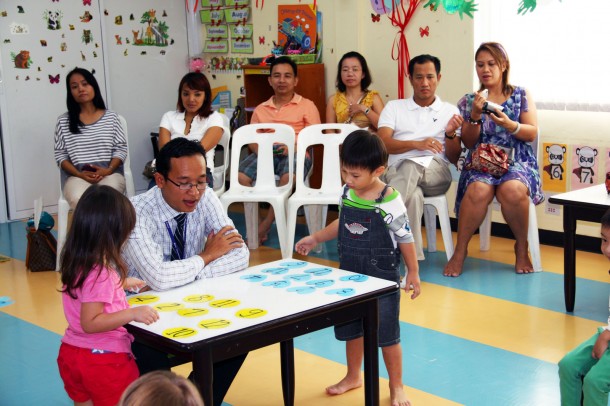
Many kindergartens now seek to incorporate more rigorous academic programs, focusing on preparation for later studies in primary school. However, as indicated by Dr. Robert Brooks in his article “The Play of Children: Lessening Stress and Increasing Self-Control,” this approach ultimately requires young learners to perform at levels they are emotionally and intellectually unprepared for, and thus overlooks an important stage in their growth. Simply put, playing in school allows children to develop creativity, social skills and emotional stability by placing them in situations in which they are challenged, but reassured by the presence of empathetic adults who guide and care for them. It is this approach that our parents had the opportunity to witness, and the philosophy by which our kindergartens operate.
If you would like to visit one of our kindergarten classrooms and speak to our staff regarding the Wells philosophy, feel free to contact us at wells51@wells.ac.th and wells62@wells.ac.th.
